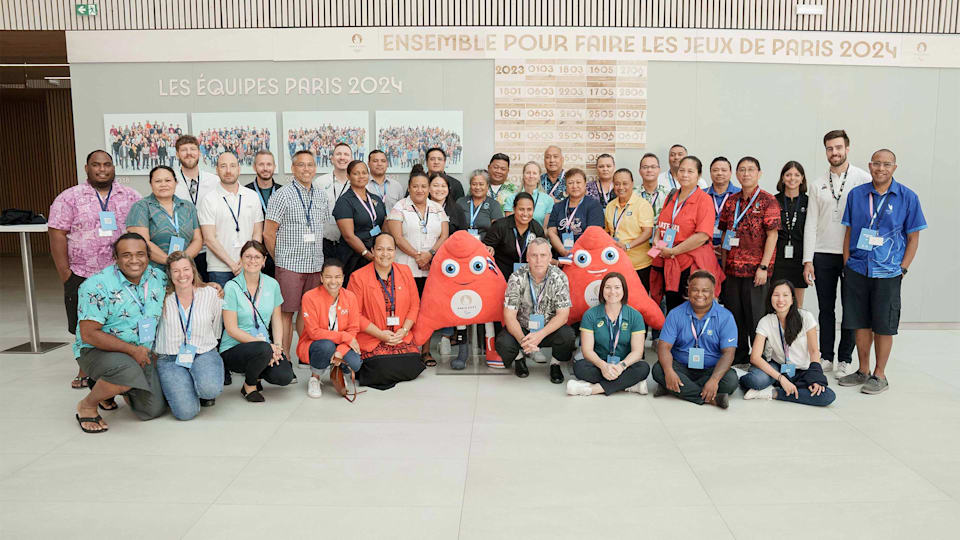A new lens on the Games: how an athlete becomes a (well-informed) Chef de Mission
From achievements on the track to success behind the scenes

Anna Meares has been an Olympic athlete in track cycling (two gold medals, one silver, three bronze). At Rio 2016, she was the flag-bearer for the Australian team at the Opening Ceremony.
As Australia’s Chef de Mission for Paris 2024, she now has an entirely new lens on the Olympics – in measure because of one of the most fundamental steppingstones on the pathway to any Games, the seminar for team leaders like her from around the world about a year ahead of Opening Ceremony.
“I had no idea all this happened behind the scenes,” Meares said. “No idea to what level.”
It is said the Olympic Games are the most complex event that happens in peacetime.
This is the raison d’être of the Chef de Mission seminar and forums– to make sure leaders of more than 200 NOC delegations at the Games are as informed as can be. A problem that might come up? Now, Meares said, she knows “who to escalate it to”.
Typically, there are two sets of these kinds of meetings, continental and worldwide. For those in, say, the Americas, the continental get-together – the IOC NOC Games Preparation Forum for America - took place in Houston in February 2023. Then everyone reconvened in Paris, in the summer, for the Chefs de Misson seminar, run by the Paris 2024 Organising Committee.
Big picture, the IOC seeks at these meetings to ensure that the Chefs understand not only the concept of the Games – “information overload”, Meares said, “very immersive, very insightful” – but changes in comparison to past editions.
It also offers the chance to tour the venues. And, in Paris, to see how to get there via the metro - a preview of how many will indeed get around during the 2024 Games. Under the New Norm, the IOC is moving away from dedicated transport systems, turning instead as much as possible to public transport, seeking to make the Games more sustainable and less expensive for host cities. Wherever needed, for example to bring the athletes from the Olympic Village to the competition venues, dedicated transport is still being used.
Critically, it also offers a forum for the Chefs to raise concerns, and with one voice. Meares said, “The wheel of time moves so quickly around information and topics and position. It’s really good to have had that information with the Paris Organising Committee leads and with the IOC.”
It also offers relationship building. It not only helps a new Chef de Mission like Anna Meares learn about differences and challenges by exchanging with other Chefs de Mission. It also enables IOC Athletes Games Services to better prepare a range of stakeholders: the OrganiCommittee, NOCs, Chefs de Mission.
“I was very much the rookie in the room,” Meares said. “A great space to be, with experienced Chefs. I’ll be honest, there was a part of me that said, ‘What have I gotten myself into?’ But at the same time, it’s just in my nature to love a challenge, and I love learning. And it just provided a platform where I had so many curiosities and questions that hit a peak that I think started my position in this role really positively.”